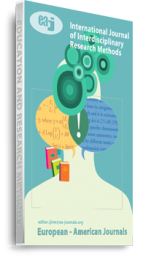There is general lack of quantification and disclosure of human assets in domestic and international financial reports, and this appears to depress public assessment of the financial performance and value of firms. This study investigated the effect of human resource costs on the financial performance of firms in Nigerian. The specific objective is to determine the extent to which investments in human resources influence profit after tax and turnover of firms in Nigeria. Secondary data on relevant financial variables were extracted from published financial statements of ten selected listed firms in Nigeria. The OLS technique was employed in analyzing the data and the results indicate that personnel benefit costs have positive and significant effect on Profitability, explaining about 73.9% of the variations in Profit After Tax of firms in Nigeria. The results however reveal no significant effect of Personnel Benefit Costs on firm turnover. The paper therefore concludes that investments in human resources have positive trade-off effects on profitability and growth of firms and recommends greater commitment to manpower development and training, while providing proper infrastructures and conducive working environment to enhance the capacity of employees to drive positive improvements in corporate financial performance.
Keywords: Firm Turnover, Human Resource Accounting, Intellectual Capital, Knowledge-based Economy, Personnel Benefit Costs, Profit after tax, agribusiness

